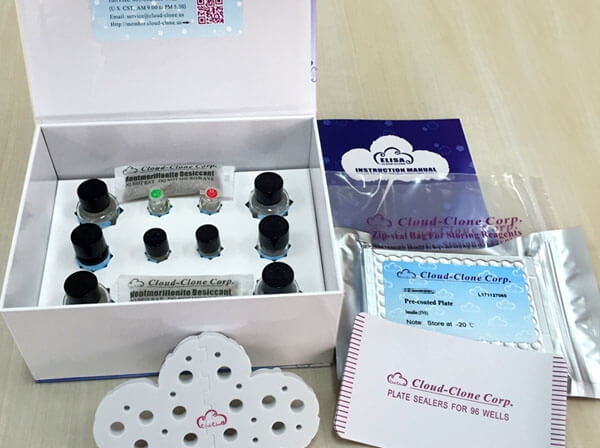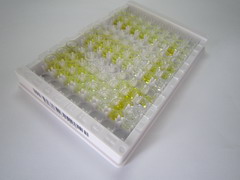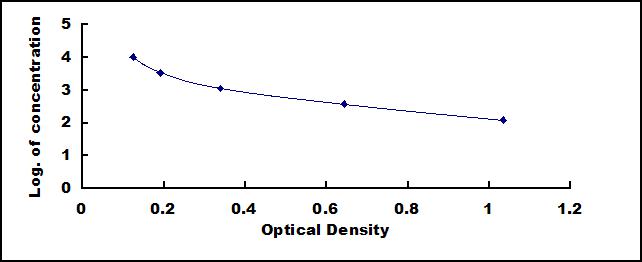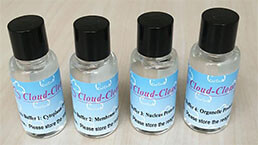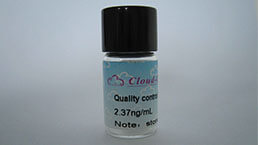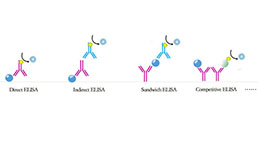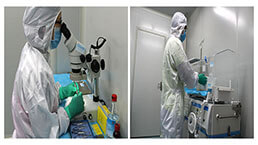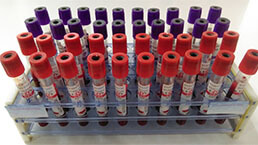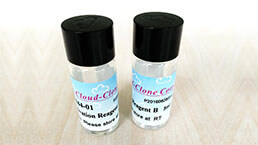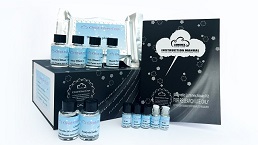- Featured-Product
ELISA Kit for Albumin (ALB) 

Serum albumin
- UOM
- FOB US$ 284.00 US$ 406.00 US$ 1,827.00 US$ 3,451.00 US$ 28,420.00
- Quantity
Overview
Properties
- Product No.CEB028Ra
- Organism SpeciesRattus norvegicus (Rat) Same name, Different species.
- ApplicationsEnzyme-linked immunosorbent assay for Antigen Detection.
Research use only - DownloadInstruction Manual
- CategoryTumor immunityInfection immunityHematologyHepatologyNutrition metabolism
Sign into your account
Share a new citation as an author
Upload your experimental result
Review

Contact us
Please fill in the blank.
Recovery
Matrices listed below were spiked with certain level of recombinant Albumin (ALB) and the recovery rates were calculated by comparing the measured value to the expected amount of Albumin (ALB) in samples.
| Matrix | Recovery range (%) | Average(%) |
| serum(n=5) | 80-95 | 84 |
| EDTA plasma(n=5) | 92-101 | 96 |
| heparin plasma(n=5) | 90-98 | 94 |
Precision
Intra-assay Precision (Precision within an assay): 3 samples with low, middle and high level Albumin (ALB) were tested 20 times on one plate, respectively.
Inter-assay Precision (Precision between assays): 3 samples with low, middle and high level Albumin (ALB) were tested on 3 different plates, 8 replicates in each plate.
CV(%) = SD/meanX100
Intra-Assay: CV<10%
Inter-Assay: CV<12%
Linearity
The linearity of the kit was assayed by testing samples spiked with appropriate concentration of Albumin (ALB) and their serial dilutions. The results were demonstrated by the percentage of calculated concentration to the expected.
| Sample | 1:2 | 1:4 | 1:8 | 1:16 |
| serum(n=5) | 84-96% | 92-104% | 85-102% | 92-99% |
| EDTA plasma(n=5) | 82-105% | 97-105% | 94-102% | 97-105% |
| heparin plasma(n=5) | 90-99% | 92-101% | 86-96% | 83-94% |
Stability
The stability of kit is determined by the loss rate of activity. The loss rate of this kit is less than 5% within the expiration date under appropriate storage condition.
To minimize extra influence on the performance, operation procedures and lab conditions, especially room temperature, air humidity, incubator temperature should be strictly controlled. It is also strongly suggested that the whole assay is performed by the same operator from the beginning to the end.
Reagents and materials provided
| Reagents | Quantity | Reagents | Quantity |
| Pre-coated, ready to use 96-well strip plate | 1 | Plate sealer for 96 wells | 4 |
| Standard | 2 | Standard Diluent | 1×20mL |
| Detection Reagent A | 1×120µL | Assay Diluent A | 1×12mL |
| Detection Reagent B | 1×120µL | Assay Diluent B | 1×12mL |
| TMB Substrate | 1×9mL | Stop Solution | 1×6mL |
| Wash Buffer (30 × concentrate) | 1×20mL | Instruction manual | 1 |
Assay procedure summary
1. Prepare all reagents, samples and standards;
2. Add 50µL standard or sample to each well.
And then add 50µL prepared Detection Reagent A immediately.
Shake and mix. Incubate 1 hour at 37°C;
3. Aspirate and wash 3 times;
4. Add 100µL prepared Detection Reagent B. Incubate 30 minutes at 37°C;
5. Aspirate and wash 5 times;
6. Add 90µL Substrate Solution. Incubate 10-20 minutes at 37°C;
7. Add 50µL Stop Solution. Read at 450 nm immediately.

Test principle
This assay employs the competitive inhibition enzyme immunoassay technique. An antibody specific to albumin has been pre-coated onto a microplate. A competitive inhibition reaction is launched between biotin labeled albumin and unlabeled albumin (Standards or samples) with the pre-coated antibody specific to albumin. After incubation the unbound conjugate is washed off. Next, avidin conjugated to Horseradish Peroxidase (HRP) is added to each microplate well and incubated. The amount of bound HRP conjugate is reverse proportional to the concentration of albumin in the sample. After addition of the substrate solution, the intensity of color developed is reverse proportional to the concentration of albumin in the sample.
Giveaways
Increment services
Citations
- Simvastatin Reduces Endotoxin-Induced Acute Lung Injury by Decreasing Neutrophil Recruitment and Radical FormationPubMed: 22701728
- Albumin administration protects against bilirubin-induced auditory brainstem dysfunction in Gunn rat pupsOnlinelibrary: liv.12219
- Adjunctive corticosteroid therapy improves lung immunopathology and survival during severe secondary pneumococcal pneumonia in micePubmed: 24273183
- Increased Circulating Levels of Vitamin D Binding Protein in MS PatientsPubmed:25590278
- The wnt/β-catenin signaling pathway participates in rhein ameliorating kidney injury in DN micePubMed: 26346164
- Collecting Protein Biomarkers in Breath Using Electret Filters: A Preliminary Method on New Technical Model and Human StudyPubmed:26934615
- 3D Printing of Differentiated Bone Marrow Mesenchymal Cells as a New Method for Liver Tissue Engineeringart00007
- Alteration of Connexin43 expression in a rat model of obesity-related glomerulopathy.pubmed:29246788
- Resolvin D1 Promotes SIRT1 Expression to Counteract the Activation of STAT3 and NF-κB in Mice with Septic-Associated Lung InjuryPubmed:30014231
- Maternal low-quality protein diet exerts sex-specific effects on plasma amino acid profile and alters hepatic expression of methyltransferases in adult rat offspringPubmed:29582727
- Electret filter collects more exhaled albumin than glass condenser: A method comparison based on human studyPubmed:29384875
- Therapeutic efficiency of human amniotic epithelial stem cell-derived functional hepatocyte-like cells in mice with acute hepatic failurePubmed: 30463600
- Decellularized Human Liver Scaffold‐Based Three‐dimensional Culture System Facilitate HBV InfectionPubmed: 30963688
- Treatment with 3, 4-dihydroxyphenylethyl alcohol glycoside ameliorates sepsis-induced ALI in mice by reducing inflammation and regulating M1 polarizationPubmed: 31146107
- Anti-proteinuria effect of antibody against ANGPTL3 coil-coiled domain on adriamycin-induced nephropathy in micePubmed: 31256934
- A small molecule inhibitor MCC950 ameliorates kidney injury in diabetic nephropathy by inhibiting NLRP3 inflammasome activationPubmed: 31447572
- Diiodothyronines regulate metabolic homeostasis in primary human hepatocytes by modulating mTORC1 and mTORC2 activityPubmed: 31580898
- Preliminary study on the effects of enrofloxacin, flunixin meglumine and pegbovigrastim on Mycoplasma bovis pneumoniaPubmed: 31655595
- Ghrelin alleviates traumatic brain injury-induced acute lung injury through pyroptosis/NF-κB pathwayPubmed: 31918060
- Sodium butyrate ameliorates deoxycorticosterone acetate/salt-induced hypertension and renal damage by inhibiting the MR/SGK1 pathwayPubmed: 32908237
- Sleeve Gastrectomy Attenuates Diabetic Nephropathy by Upregulating Nephrin Expressions in Diabetic Obese RatsPubmed: 32399849
- Protective Role of Training and Selenium Consumption Against Renal Toxicity Induced by Cadmium in Rats
- Gut Dysbiosis Contribute to High Fructose Induced Salt Sensitive Hypertension In Sprague-Dawley Rats
- A light-induced self-powered competitive immunosensor for the detection of platelet derived growth factor-BB via an elaborately assembled bioconjugate
- cGAS promotes sepsis in radiotherapy of cancer by up-regulating caspase-11 signaling33721834
- A simple and sensitive electrochemical impedimetric immunosensor for the detection of apolipoprotein E4 based on CeZnO nanoparticle
- Syringaresinol Resisted Sepsis-Induced Acute Lung Injury by Suppressing Pyroptosis Via the Oestrogen Receptor-β Signalling Pathway34807349
- GP73 is a TBC-domain Rab GTPase-activating protein contributing to the pathogenesis of non-alcoholic fatty liver disease without obesity34853313
- Emitter–Quencher Pair of Single Atomic Co Sites and Monolayer Titanium Carbide MXenes for Luminol Chemiluminescent Reactions34914377
- Moderation of gut microbiota and bile acid metabolism by chlorogenic acid improves high-fructose-induced salt-sensitive hypertension in micePubmed:35708145
- Syringaresinol attenuates kidney injury by inhibition of pyroptosis via activating the Nrf2 antioxidant pathway in diabetic nephropathy




